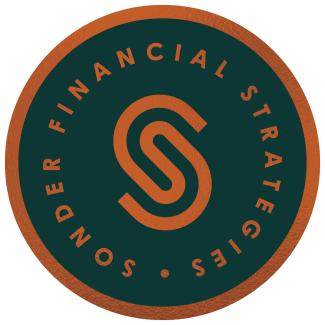
Retirement Planning
Retirement Planning
A Beginner’s Guide to Retirement Planning: How to Secure Your Future Now
When we get started, we are expected to understand retirement, but most of us don’t. We are still learning how to get into our profession or career, we are thinking about the weekend and apartments and maybe dating. We don’t know what our later years are going to look like let alone all the vocabulary and details that go into retirement. That’s why you reach out to us!
What is Retirement Planning and Why is it Important?
Retirement planning is simply learning the education needed to understand how money works. Obviously you are learning how to earn and spend money, but we are talking about the next level of how money works. Now we start to talk about maximizing benefits, managing risks, and making your money work for you! Retirement planning always means starting with where you are. For some that might mean debt repayment. For others that might mean learning to budget. For others they might be ready to start investing.
No matter where you start, this is where we want to get you. The earlier the better, but if you’re not 20 anymore, don’t fret. Again, we always start where you are, because as the old adage goes, the best time to start is yesterday, but the 2nd best time to start is TODAY!
Retirement planning is important because we will all age. Obviously everyone will reach a different age and live a different life span, but most of us can agree that even if we don’t know what our future looks like, we’d like the idea of enjoying the final years of life without concern for working or missing out on fun activities or basic necessities. Retirement planning is also critical because it allows us to take control of those means. We don’t always know what Social Security or other options might look like, and the generations before us and history has shown, that these are our responsibility.
How to Calculate Your Retirement Needs
Every person has a different set of retirement plans. And the needs that are associated with that are just as varied. So calculating those needs becomes a mathematical exercise. It comes from realizing how you want to live in retirement, how long you think you will live (and then adding a few years to be safe), what inflation looks like and how much investment risk you are willing to take and it’s corresponding average rates of return and then starting to figure out retirement in a couple of different ways. You can see how much the resources you do have will provide and adjust your vision from there. Or you can see how much your lifestyle is likely to cost and adjust your investing from there. Obviously every person is facing a different set of financial circumstances so those always need to be taken into account.
Saving for Retirement – What are some Strategies?
Just get started. That’s number one.
We like to start with an employer plan first. The reason for that is that if you have an employer willing to contribute or match payments into a retirement plan you want to do your best to maximize that extra money since you’re working hard to earn it! It’s also usually automated and so that helps you not miss the opportunity or even see it go out since it can come from your paycheck. When your employer offers it, try to maximize your match first, then add from there to get to 10% total (including their percentage). And start where you are. Even 1% increases matter!
From there if you are maximizing that or don’t have access to an employer plan, we start looking at your options for investing. You can invest in a personal account with after tax money like income or other resources. Many investors can access an individual IRA or Roth IRA. These products allow you to invest in pre-taxable money, meaning you get a tax discount now, and pay the taxes later. This effectively gives you more money to invest now and let grow knowing that you will pay that money like you would from a paycheck as you take money out each month in retirement.
Making Smart Investments For Your Retirement Plan
Investing runs the spectrum of styles and types. Obviously, the more risk you take the more possible upside (or downside!) you might see. But there are also plenty of lower risk options out there too, just know that the lower the risk you take, the lower any gains or losses you might be able to access. So we like to talk about risk and match that to your timeline and needs for the funds. If you don’t need the funds now or in the coming years, you can afford to take more chances. If you need the funds now or in the near future you want to take less chances with it.
Each client is different and this is where working with your financial consultant comes in. We get to know you, your dreams, your situation and help you make the best choices for your investments.
Creating a Secure Income Stream in Retirement (Keywords: Social Security benefits eligibility criteria, pension plans)
Obviously, we all want to be filthy rich in retirement. But short of the rare few who grow up with that massive trust fund, or win a lottery in their lifetime, the vast majority of comfortable retirees earned every penny of that retirement. They worked hard, lived well and saved what they could to enjoy that income in retirement.
Here are the basics.
The government has Social Security benefits. We pay into that system to pay for current retirees and we hope that when we reach that age we can access the same or similar benefits. This is why you’ll hear a lot of arguing and politics around Social Security and how the funds are handled. As we approach baby boomer retirement and have fewer workings coming up in generations behind them, this is going to be the discussion as it has since the beginning of the program. Who gets what benefits for how long and how is it funded.
Pensions are slowing going away for new generations but are still a staple for a lot of older generations and public employees. This is basically a guaranteed income from an employer for any employee who meets certain thresholds. Think of someone talking about reaching their 10-20-30 year anniversary at work. Oftentimes this is the perk of that anniversary they are referring to.
Investments are the new retirement strategies. Having an investment account or IRA to fund retirement puts the risk management and volatility in the consumers hands. Meaning the demand for more and more advice and services around these issues will continue to grow. People will need their own advisor rather than relying on an employer to employ or hire a firm to manage their accounts.
No matter the type of retirement account you use, the goal is all the same. That secure income. Those monthly checks that you can use to pay bills. And the hope for retirement is usually that it continues to keep up with the increase in costs (inflation) and provides the resources for your goals.

